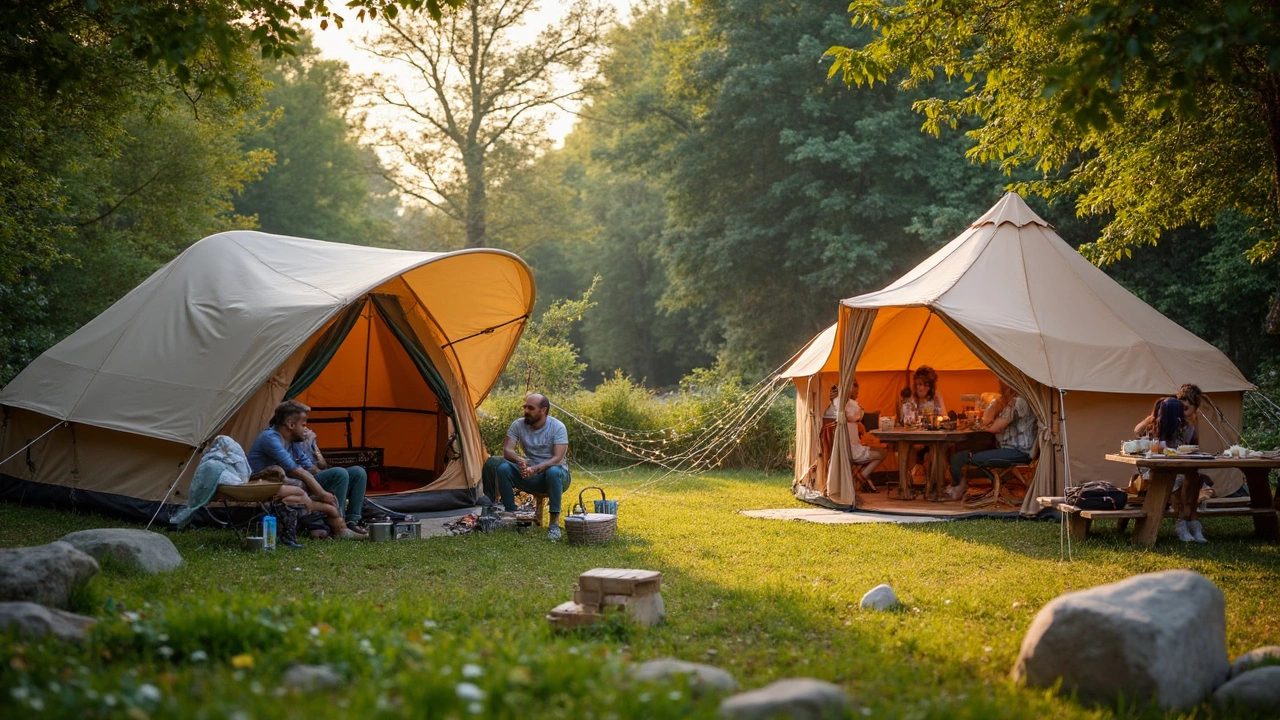How to Camp on a Tight Budget and Still Have a Blast
Dreaming of a night under the stars but scared your wallet will scream? You’re not alone. Camping can be one of the cheapest ways to travel, and with a few smart moves you can stretch every pound. Below are real‑world tips that work for newbies and seasoned campers alike.
Gear Up Without Splurging
First thing’s first – gear. You don’t need a $500 tent to enjoy the outdoors. Check local classifieds, Facebook Marketplace, or community swap groups for used tents, sleeping bags, and camping chairs. A gently used three‑season tent can be half the price of a brand‑new one and still keep you dry.
If you’re just starting out, consider a budget bivvy sack or a simple tarp setup. They’re lightweight, cheap, and perfect for mild weather. Borrowing gear from friends or family is another win‑win; you get to try before you buy, and you avoid the depreciation hit.
Don’t forget the basics: a sturdy pocketknife, a headlamp (LED models cost under £10), and a compact stove. Look for multi‑use items – a pan that doubles as a pot saves space and money.
Find Free or Low‑Cost Campsites
National parks and forests often have free wild‑camping spots. In England, you can pitch on most Dartmoor and Lake District wild‑camping areas as long as you follow the “Leave No Trace” rules. Scotland even has the “right to roam” – you can camp on most unenclosed land for up to 24 hours.
If you prefer facilities, hunt for budget campsites on sites like Pitchup or Cool Camping. Look for off‑season discounts; many sites lower rates by 30‑50% from May to September.
Don’t overlook farmer’s fields or small B&Bs that allow you to set up a tent in the yard for a nominal fee. A quick Google search plus a friendly call can score you a spot for a few pounds.
Smart Food Planning
Food is where most budgets blow up. Save by planning meals around cheap, non‑perishable items: pasta, rice, beans, and canned tuna. Bring a small cooler with ice packs for fresh produce – you’ll spend less on pricey campsite cafés.
One‑pot meals are a lifesaver. Throw in some noodles, veggies, and a protein source, and you’ve got a filling dinner with minimal cleanup. Don’t forget a portable coffee maker – brewing your own coffee costs pennies compared to the $5 cup at a resort.
Transportation Hacks
Driving your own car is often cheaper than taking a train or bus, especially if you share the fuel cost with friends. Pack light to avoid extra mileage. If you’re solo, consider a car‑share app or a cheap bus route to the nearest trailhead.
If you’re near a coastal area, look for “car-free” campsites that are reachable by bike or public transport – you’ll cut fuel expenses and get a bit of exercise.
Entertainment on a Shoestring
Most of the fun in camping comes from the nature itself – hiking, stargazing, and swimming are free. Bring a deck of cards, a lightweight board game, or a book for evenings around the campfire. If you’re near a lake, try free water activities like paddle‑boarding (many places let you rent for a few pounds an hour).
Check local tourism boards for free guided walks or community events. Often, a short hike with a knowledgeable guide costs nothing and adds huge value to your trip.
Bottom line: camping cheap is all about planning, borrowing, and using what’s already out there. With these tips, you can enjoy a great outdoor escape while keeping your budget happy. Pack your bag, pick a spot, and get ready for some unforgettable nights under the stars.
Is Glamping More Expensive Than Camping? Real Costs, Tips & Comparisons for 2025
See if glamping is really pricier than camping—real numbers, tips, and the latest 2025 trends. Clear cost breakdowns, advice for saving, and key differences.
- Jun, 27 2025
- 0 Comments
